- Home
- Dale Mayer
Nabbed in the Nasturtiums Page 10
Nabbed in the Nasturtiums Read online
Page 10
“That’s hard to imagine,” she said. “I mean, it’s easy to judge Hinja for not going to the police, and, although Nan says Hinja went later, I couldn’t find anything in the police file. So I don’t know when it might have been.”
“Who knows? Maybe they didn’t find it credible at that point,” he muttered.
“Maybe not.”
“Does Hinja mention anybody else in her life at that time? Could it have been anybody else associated with Bob?”
“It’s possible, but, according to her, Bob was a loner, and she’s the one who mentioned the curly hair.”
“Which is a reach at best,” he pointed out. “Plus, did Hinja ever say he was Bob Small, or did she just call him Bob all the time?”
“I know. I know,” she said, “but he did have those photographs.”
“Which she doesn’t have, right?”
“No. She doesn’t, and I don’t know anything about where Bob Small is at this point.”
“I’m not sure he’s even alive. I thought I heard, at some point, that he was in jail for something different.”
“That could explain why the killings stopped.”
“Killings can stop for all kinds of reasons,” he said. “Incarceration is one of those options, but it could also be that he had his fill. Sometimes serial killers stop from one day to the next. Sometimes they have fulfilled whatever compulsion was driving them, and they just stop.”
“Maybe,” she said, “but it seems, like you said, thin.”
He laughed. “Maybe so, but, at the same time, none of that is enough to go on. Even when all added together.”
“And that’s probably why Hinja felt the way she did. All she had were her bad feelings and a couple conversations.” She paused. “And the photos. And the missing curling iron. And mentioning her niece’s curly hair.”
“Exactly,” he said. “Now, if you found other information or personal belongings of his that gave us more to go on, that would be a different story.”
“So, you guys always thought Bob Small had something to do with a lot of these.”
“Yes, but we had no proof.”
“What about some of this genealogy DNA stuff that’s going on?”
“That would be possible,” he said, “if we had any funding for it.”
“Everything comes down to budget in the end, doesn’t it?” she said, staring at him, though not in surprise but almost with an inner resignation.
“Same as you,” he said. “You know that you want salmon again, but it’s expensive, and you know you can have twenty cans of tuna for the same cost as a good salmon fillet.”
“And twenty cans of tuna is twenty meals, versus one, possibly two, from salmon,” she said, with a nod. “I get it. The budget money, the manpower, the hours, all have to go to current crimes, versus tracking somebody who may not even be alive anymore.”
“Or, if he’s in prison, and he’s not a danger where he is, that makes a difference too. But an awful lot of cases could be potentially tied to him. But I don’t know that there’s DNA from very many victims because we don’t have very many bodies,” he replied.
“Right, so what you really need to find is his body dump.”
He nodded. “Did she mention anything like that?”
“Not that I saw,” she said, frowning, “and I’m not sure there is anything in the letters beyond the rantings of a betrayed woman.”
“In which case,” he said, “you have to really weigh that in with her beliefs.”
“Yes,” she said, with a nod. “But maybe I’ll go through them again. There did seem to be a favorite place they used to go.”
“Which would be the last place he would use as a body dump,” he said. “Is there an address or anything? A location where he lived? Anything?”
“You know what? I’m not sure. I wasn’t thinking of things like that at the time, so I’ll read it all again.” And she needed to rummage around in Solomon’s files again. See what he had mentioned in there.
“You do that,” he said, “and, if you come up with a location, we’ll be more than happy to investigate the place. Finding a site where he disposed of the bodies would make a huge difference in tying up things regarding all these cases that might involve Bob Small.”
“Right, because bodies are the first and foremost source of forensic evidence, aren’t they?”
“If there are any, yes,” he said. “Just think about it. The cause of death, whether drugs were used, weapons, fibers, hair, DNA, all of that can be gotten from a body.”
“I’ll read through the letters and that one journal again tonight,” she promised.
“You don’t have to rush,” he said, with a lopsided look her way. “Remember. You’re supposed to de-stress, decompress, and relax. That last case took a lot out of you.”
“I think a lot of that was just knowing the individuals involved so personally,” she murmured. “Knowing it was Mathew and Robin, bringing up all that old hurt and betrayal again.”
“With good reason,” he said. Then briskly changing the subject, he stood, collected the dishes, and said, “You cooked, so I’ll do dishes.”
She watched in astonishment as he carried everything inside and started the hot soapy water in the sink. It also wasn’t the first time that he’d gotten up and walked away while they were discussing the case involving Mathew. Maybe it made him uncomfortable. Or maybe he was just trying to change the subject to stop her from focusing on it. She rose, collected their cups, and walked back in. “Will you want a cup of coffee when you’re done there?”
He looked at her, smiled, and said, “No, not tonight, thanks. I’ll head back to the office.”
“Really? You’re sure putting in a lot of overtime.”
“I am,” he said, “but, right now, we’re kind of overwhelmed with cases.” And he wiggled his eyebrows at her.
She smiled. “I guess I really should slow down, shouldn’t I?”
“Not on our account,” he said. “We’re all about the victims and the families. If you come up with something else, just let me know.” He pulled the plug on the soapy water, dried his hands, and said, “You did a great job with dinner tonight. Don’t ever doubt yourself.”
And, with that, he bent down, picked up Goliath, and gave him a great big hug, while Goliath acted like a sack of flour in his arms. But Goliath’s heavy diesel engine kicked in, making them both laugh, as the purring began in earnest. Mack bent to cuddle Mugs for a moment and then walked over to the table to Thaddeus and trailed his finger gently over the bird’s cheek and back. “Have a good evening, Thaddeus.”
Thaddeus stood up, flapped his wings, and said, “Mack, Mack, Mack.”
Mack laughed. “Yep, that’s me,” he said. “I’m here, but I’m leaving now.”
“Goodbye, Mack. Goodbye, Mack. Goodbye, Mack.”
She walked over, shaking her head. “He learns the darndest things.”
“Yep, but he’s been a huge savior on many occasions,” Mack said, “so we’ll forgive him.”
“True enough,” she said, laughing.
Everybody trooped to the front door, as she watched Mack get into the front seat of his truck and drove away. Feeling a little lost and forlorn, she headed back to the kitchen, put on the teakettle, grabbed the last journal and her notepad, and headed outside. When the teakettle whistled, she went and made a cup of tea and went back to her reading. She started at the beginning, but this time reading a little more intently, looking for more specific information and details. She found bits and pieces, such as this note.
He called from Abbotsford.
And then another one, where he’d called from Abbotsford again. She wished she had some time line log of his travels, showing where and when he’d gone from one place to another. Abbotsford appeared to be a fairly consistent theme. She picked up the phone and asked Nan, “These notes and things don’t have any address or anything. Where did your friend live?”
“Langley,” she said, “kind of
out toward the Abbotsford area, but not that far.”
“So she was what maybe twenty minutes or half an hour from Abbotsford?”
“Oh, I have no idea,” she said.
“I just see an awful lot of phone calls from her trucker friend to her from Abbotsford.”
“That’s if you can believe everything,” Nan said. “Don’t forget. He could say he’s calling from Abbotsford, but that doesn’t mean he was. He could have been sitting at a hotel or restaurant just around the corner from her house.”
Doreen winced at that thought. “That isn’t really something I want to think about. It’s kind of creepy.”
“Men who want to deceive will find all kinds of ways to do it,” Nan said. “You’re still working on that case, but I’m not sure it’s a healthy one for you.”
“No, but when there are so many victims,” she said, “it does make you wonder.”
“I get that,” she said, “and I know there’s absolutely nothing I can say to turn you away from it at this point.”
“No, you’re right about that,” she said, and soon they disconnected.
After talking to Nan and realizing that the case was starting to get a bit dark, Doreen put everything away, locked up her house, set the alarm, and headed upstairs, where she curled up with the animals around her on her bed and watched an old comedy. She was still laughing when her phone buzzed with an incoming email. She took a look to find an email from somebody who she didn’t know, asking Doreen if she could help. She quickly opened up the email.
My uncle has been kidnapped in Kelowna. I know he had a very varied and reckless past, but I don’t want that to impact how the police look after him. I was hoping you could look into the case.
Doreen stared at it for a long moment, then quickly responded. How did you find my email?
Immediately the response came back.
You’ve been featured in several news stories lately. I just tried your first letter of your first name and your complete last name with Gmail. It’s a fairly common way people set up their emails these days.
Doreen winced because that’s exactly what it was. Just what is it you want me to do? She had quickly replied, then waited for the response to come back.
Investigate. Your success rate is phenomenal, and I would hate to think that my uncle Dicky would be looked upon simply because of who he is.
You’ll need to give me more information as to who your uncle is and what you think is going on here. Honestly you might as well call. That would be faster and more expedient. Then she added her phone number. Her telephone rang almost immediately. When she answered, a young woman was at the other end.
“Hello, I’m Denise,” she said. “I’m the one who emailed you about my uncle.”
“Hi, Denise. I’m not sure how I can help you.”
“I know,” she said. “I’m desperate though. My uncle has a criminal record, and he found it very difficult to get this job in Kelowna in the first place. But, since he has been there, he’s really done very well.”
“No more criminal activities?”
“No, in fact, he’s been there for seven years. Prior to that he spent ten years in prison in Abbotsford.”
Her ears perked up. “A prison is in Abbotsford?”
“Yes,” she said, “it’s been there for quite a few years.”
“Hmm,” she said, “interesting. What did your uncle go away for?”
“He falsified documentation for somebody and got caught.”
“Like an accountant-type thing?”
“Something like that, though I’m not sure of the details. He doesn’t talk about it, and honestly, once I saw how much it upset him, I didn’t bring it up again.”
“So how do you know he hasn’t been involved in anything like that since?”
“I don’t know for sure,” she said, “but he promised me that he would go on the straight and narrow and that he’d only gotten in too deep because he hadn’t really been thinking about what he was doing. He was trying to get ahead in the world, and, once he realized he was in too deep, he knew he was in trouble and had no way to get out.”
“Who was he working for back then?”
“I don’t know,” she said. “Is it important?”
“If he’s involved with various people, keeping their accounting records, and some of them are less than savory, doesn’t it make sense that they might be the ones who kidnapped him?”
“But why would they?” she asked. “He was in jail for many years. They could have got to him through the prison system.”
“Maybe,” she said, “but sometimes things take time. Or maybe they didn’t know he had something they wanted. Or maybe he went into hiding when he got out, and they’ve only really been looking for him for the last seven years.”
Denise sounded more than doubtful when she said, “I guess you have to look at all aspects.”
“Assuming it isn’t any of that,” Doreen said, “what do you think is going on here?”
“I don’t know,” she said. “I was thinking he was in the wrong place at the wrong time or something. You know? Like a drive-by shooting or something.”
“But what would be the purpose of taking the body away? The fact that there is no body is what makes this very curious.”
She gasped. “I’m hoping he’s alive and well and that somebody would ask for ransom, but, so far, that hasn’t happened.”
“Sometimes that can take a while, as they wait to make sure the family is really frantic and losing hope, and then, when the call for ransom comes, the distraught family jumps at a chance to get their loved one back.”
“But there is mostly just me now,” Denise said quietly. “Everybody else is pretty well gone. We had extended family, but they moved back east when he was jailed, afraid they would be tarnished by the same brush,” she said. “But there’s just him and me now. My father died a good fifteen years ago now, and Uncle Dicky is the only family I have left.”
“And have you kept in touch with him?”
“Absolutely,” she said, “we talked every day. He was really happy with his job, was loving everything here. He was enjoying his life here very much. He was learning to do a lot more cooking, which had always been his thing. He’s a bit of a foodie,” she said in a confidential whisper, as if it were a secret.
“If he was in a nasturtium garden that was for eating, then that would make sense,” she said. “What about his boss? Any problems with him?”
“Not that I know of. Uncle Dicky kept telling me how absolutely wonderful his job was and how much he appreciated fresh air and being free.”
“Even after all these years?”
“I think, as the years went by, instead of getting blasé about it, it seemed like he was more grateful as time went on. I know he felt like he should do something for others in his world, but he felt like he was handicapped because of his record.”
“When you say, others in his world, you mean, his other convicted friends?”
“Yes,” she said, “an awful lot of them hung out for the first few years, and I don’t mean hung out physically because that’s always bad news, but I mean they kept in touch.”
“So, do you have any names for me, so I can contact them and see if they have any idea who might have done this?”
“Oh, gosh,” she said, “let me think. Maybe a couple names that I picked up just from listening to him talk.”
“Do you have any contact information?”
“No,” she said doubtfully, “nothing like that.”
“Can you get into his email? Or do you know his phone number or anything?”
“I do have a little bit of that kind of information,” she said. “I’ll put it into an email for you.”
“That would be good,” she said, “otherwise I might lose it.”
“I know,” Denise said. “Everything on the phone is so hard to remember these days. As soon as you get off, it’s a scramble to remember what you were supposed to do,” she s
aid, laughing. “Don’t worry. I’m writing up an email as we talk.”
“Good,” Doreen said, “and, while you’re at it, put down anything you know of anybody who might have bothered him over the last many years. Anybody from jail who might have scared him, anybody from his previous life in his fraudulent activities who might have not wanted him to have a good life.”
“Wow,” she said, “that’s an awful lot more information than I think I have.”
“Give me whatever you’ve got,” she said. “We have to start somewhere.”
As Denise gushed out her gratitude, Doreen said, “And remember. I can’t promise you anything.”
“No, I understand,” she said. “I just appreciate you looking into it. Honestly I’m afraid the cops won’t give it a fair shake.”
“I think you’re wrong there,” she said. “I know several of the local policemen here, and they don’t discriminate.”
“I hope you’re right,” Denise said doubtfully. “But I haven’t seen it.”
“Have you even talked to anybody yet?”
“No, they won’t give me any information.”
“Are you the only living relative?”
“I said so.”
“Yes, you did, but I’m questioning that because, if you’re the only living relative, or even the closest living relative, they will often want to talk to you, in order to ask you some questions.”
“I did get a phone message from somebody named Mack,” she said, “but I haven’t answered it. I just got it a little while ago.”
“I do know Mack,” Doreen said, with a smile. “And he will give your uncle a fair shake.”
“Maybe, but why didn’t he call me as soon as it happened?”
“Maybe he didn’t know about you,” she said. “When did you contact somebody to let them know that you were looking for him? How are they supposed to know that you were somewhere nearby? It’s not like there is a directory for that sort of thing.”
“You’re right,” she said in surprise. “I didn’t even think of that. I’m probably not listed on his contact information anywhere.”
“Exactly.” And, with that, the two women hung up.
Doreen realized it would probably be a lot longer than a few minutes for the email to be typed up by Denise and then sent to Doreen, but it was hard to do anything else now, she was so keyed up. “Just because of that,” she said, “I may as well look into Abbotsford and the penitentiary there, while I’m waiting.”

 Finn
Finn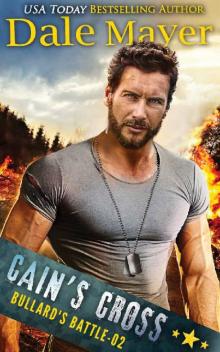 Cain's Cross (Bullard's Battle Book 2)
Cain's Cross (Bullard's Battle Book 2) Heath: A Hathaway House Heartwarming Romance
Heath: A Hathaway House Heartwarming Romance Killian
Killian Keane
Keane Melissa: A Hathaway House Heartwarming Romance
Melissa: A Hathaway House Heartwarming Romance Denton: A Hathaway House Heartwarming Romance
Denton: A Hathaway House Heartwarming Romance Colton: SEALs of Honor, Book 23
Colton: SEALs of Honor, Book 23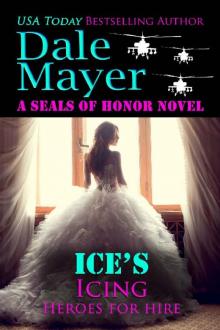 Ice's Icing: A SEALs of Honor World Novel (Heroes for Hire Book 20)
Ice's Icing: A SEALs of Honor World Novel (Heroes for Hire Book 20) Elliot (Hathaway House Book 5)
Elliot (Hathaway House Book 5)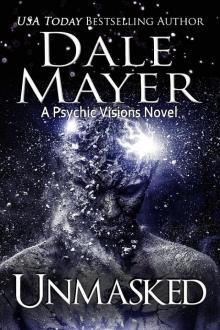 Unmasked
Unmasked Zack's Zest: A SEALs of Honor World Novel (Heroes for Hire Book 24)
Zack's Zest: A SEALs of Honor World Novel (Heroes for Hire Book 24) Lucas
Lucas Lennox
Lennox Kerrick
Kerrick Nico (The Mavericks Book 8)
Nico (The Mavericks Book 8) Baylor: SEALs of Honor, Book 26
Baylor: SEALs of Honor, Book 26 SEALs of Honor: Kanen
SEALs of Honor: Kanen Brock
Brock SEALs of Honor: Taylor
SEALs of Honor: Taylor Greyson (The K9 Files)
Greyson (The K9 Files) Jackson
Jackson Corpse in the Carnations
Corpse in the Carnations Lance: A Hathaway House Heartwarming Romance
Lance: A Hathaway House Heartwarming Romance Biker Baby Blues--Morgan Book 4
Biker Baby Blues--Morgan Book 4 Cain's Cross
Cain's Cross Ice Pick in the Ivy (Lovely Lethal Gardens Book 9)
Ice Pick in the Ivy (Lovely Lethal Gardens Book 9) Blaze
Blaze Iain: A Hathaway House Heartwarming Romance
Iain: A Hathaway House Heartwarming Romance Tucker (The K9 Files Book 13)
Tucker (The K9 Files Book 13) Weston
Weston Jax (The Mavericks Book 3)
Jax (The Mavericks Book 3) Simon Says... Jump (Kate Morgan Thrillers Book 2)
Simon Says... Jump (Kate Morgan Thrillers Book 2) Nabbed in the Nasturtiums
Nabbed in the Nasturtiums Kano's Keep
Kano's Keep Jewels in the Juniper (Lovely Lethal Gardens Book 10)
Jewels in the Juniper (Lovely Lethal Gardens Book 10) Ryker (The Mavericks Book 6)
Ryker (The Mavericks Book 6) Miles
Miles Asher (The Mavericks Book 5)
Asher (The Mavericks Book 5)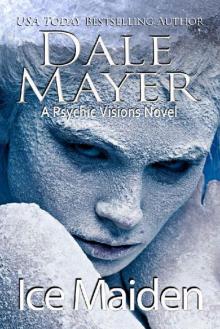 Ice Maiden : A Psychic Visions Novel
Ice Maiden : A Psychic Visions Novel Aaron
Aaron Jaden: A Hathaway House Heartwarming Romance
Jaden: A Hathaway House Heartwarming Romance Deep Beneath: A Psychic Vision Novel
Deep Beneath: A Psychic Vision Novel Parker (The K9 Files Book 6)
Parker (The K9 Files Book 6) Ethan
Ethan Lucas (The K9 Files Book 5)
Lucas (The K9 Files Book 5) Snap, Crackle ...
Snap, Crackle ... Tanner: SEALs of Honor, Book 18
Tanner: SEALs of Honor, Book 18 Shane
Shane SEALs of Honor: Baylor
SEALs of Honor: Baylor Heath
Heath Handcuffs in the Heather
Handcuffs in the Heather Finn (Hathaway House Book 6)
Finn (Hathaway House Book 6) Noah's Nemesis
Noah's Nemesis Elliot
Elliot Jaden
Jaden Kerrick (The Mavericks Book 1)
Kerrick (The Mavericks Book 1) Ryland’s Reach (Bullard's Battle Book 1)
Ryland’s Reach (Bullard's Battle Book 1) Evidence in the Echinacea (Lovely Lethal Gardens Book 5)
Evidence in the Echinacea (Lovely Lethal Gardens Book 5) Rowan (The K9 Files Book 10)
Rowan (The K9 Files Book 10) Gregory
Gregory Reyes’s Raina
Reyes’s Raina The Final Reveal
The Final Reveal Cat's Claus
Cat's Claus Jerricho
Jerricho Vince's Vixen
Vince's Vixen Jax
Jax From the Ashes: A Psychic Visions Novel
From the Ashes: A Psychic Visions Novel Johan's Joy
Johan's Joy Simon Says... Hide (Kate Morgan Thrillers Book 1)
Simon Says... Hide (Kate Morgan Thrillers Book 1) Keane (The Mavericks Book 9)
Keane (The Mavericks Book 9) Gavin (The Mavericks Book 11)
Gavin (The Mavericks Book 11) Fallon's Flaw
Fallon's Flaw Johan's Joy: A SEALs of Honor World Novel (Heroes for Hire Book 21)
Johan's Joy: A SEALs of Honor World Novel (Heroes for Hire Book 21) Dezi’s Diamond
Dezi’s Diamond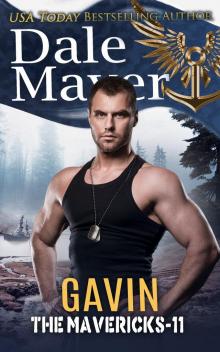 Gavin
Gavin Keith: A Hathaway House Heartwarming Romance
Keith: A Hathaway House Heartwarming Romance Eton's Escape (Bullard's Battle Book 3)
Eton's Escape (Bullard's Battle Book 3) Eton's Escape
Eton's Escape Galen's Gemma
Galen's Gemma Jewels in the Juniper
Jewels in the Juniper SEALs of Honor: Axel
SEALs of Honor: Axel Aaron: A Hathaway House Heartwarming Romance
Aaron: A Hathaway House Heartwarming Romance Gun in the Gardenias (Lovely Lethal Gardens Book 7)
Gun in the Gardenias (Lovely Lethal Gardens Book 7) Diesel (The Mavericks Book 13)
Diesel (The Mavericks Book 13) Kurt (The K9 Files Book 12)
Kurt (The K9 Files Book 12) Miles (The Mavericks Book 7)
Miles (The Mavericks Book 7) Dagger in the Dahlias
Dagger in the Dahlias Geir
Geir Handcuffs in the Heather (Lovely Lethal Gardens Book 8)
Handcuffs in the Heather (Lovely Lethal Gardens Book 8) Keith
Keith Iain
Iain Beau
Beau Biker Blues
Biker Blues From the Ashes
From the Ashes SEALs of Honor: Troy
SEALs of Honor: Troy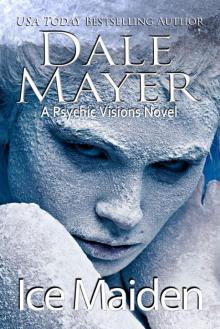 Ice Maiden
Ice Maiden Lennox (The Mavericks Book 10)
Lennox (The Mavericks Book 10) Dagger in Dahlias
Dagger in Dahlias Arsenic in the Azaleas
Arsenic in the Azaleas Bonaparte's Belle: A SEALs of Honor World Novel (Heroes for Hire Book 24)
Bonaparte's Belle: A SEALs of Honor World Novel (Heroes for Hire Book 24) Simon Says... Ride (Kate Morgan Thrillers Book 3)
Simon Says... Ride (Kate Morgan Thrillers Book 3) SEALs of Honor: Hawk
SEALs of Honor: Hawk Cole
Cole Carter
Carter Beau (The Mavericks Book 4)
Beau (The Mavericks Book 4) Psychic Visions 08-Now You See Her...
Psychic Visions 08-Now You See Her... Broken Protocols 1-3
Broken Protocols 1-3 Nash
Nash Griffin (The Mavericks Book 2)
Griffin (The Mavericks Book 2) Tucker
Tucker![Biker Blues_Morgan [Part 1] Read online](http://i1.bookreadfree.com/i/03/21/biker_blues_morgan_part_1_preview.jpg) Biker Blues_Morgan [Part 1]
Biker Blues_Morgan [Part 1] Stroke of Death
Stroke of Death Logan's Light: A SEALs of Honor World Novel (Heroes for Hire Book 6)
Logan's Light: A SEALs of Honor World Novel (Heroes for Hire Book 6) Biker Blues: Morgan (Biker Blues Book 1)
Biker Blues: Morgan (Biker Blues Book 1) Tuesday's Child (Book 1 of Psychic Visions, a paranormal romantic suspense)
Tuesday's Child (Book 1 of Psychic Visions, a paranormal romantic suspense) Pierce
Pierce SEALs of Honor: Cooper
SEALs of Honor: Cooper Griffin
Griffin SEALs of Honor: Mason's Wish
SEALs of Honor: Mason's Wish SEALs of Honor: Brett
SEALs of Honor: Brett Bones in the Begonias
Bones in the Begonias Darkest Designs
Darkest Designs Levi's Legend: A SEALs of Honor World Novel (Heroes for Hire Book 1)
Levi's Legend: A SEALs of Honor World Novel (Heroes for Hire Book 1) Tanner
Tanner Vampire in Chaos
Vampire in Chaos Itsy-Bitsy Spider
Itsy-Bitsy Spider Gregory: A Hathaway House Heartwarming Romance
Gregory: A Hathaway House Heartwarming Romance North’s Nikki
North’s Nikki Carter (The K9 Files Book 7)
Carter (The K9 Files Book 7) Simon Says... Hide
Simon Says... Hide Family Blood Ties Set - 3 books in 1
Family Blood Ties Set - 3 books in 1 Tyson's Treasure_A SEALs of Honor World Novel
Tyson's Treasure_A SEALs of Honor World Novel SEALs of Honor: Evan
SEALs of Honor: Evan Ryder
Ryder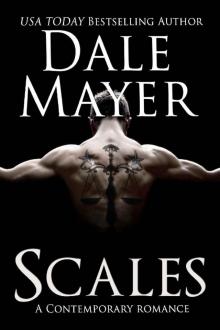 Scales: Of Justice (Broken But ... Mending Book 3)
Scales: Of Justice (Broken But ... Mending Book 3)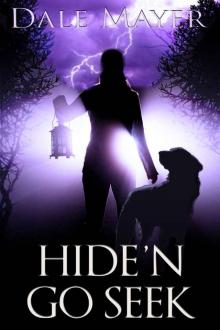 Hide'n Go Seek (Book 2 of Psychic Visions, a paranormal romance)
Hide'n Go Seek (Book 2 of Psychic Visions, a paranormal romance) Zane
Zane Eyes to the Soul
Eyes to the Soul Genesis
Genesis SEALs of Honor: Shadow
SEALs of Honor: Shadow Jace’s Jewel
Jace’s Jewel Corey
Corey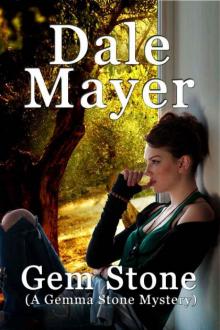 Gem Stone
Gem Stone Evidence in the Echinacea
Evidence in the Echinacea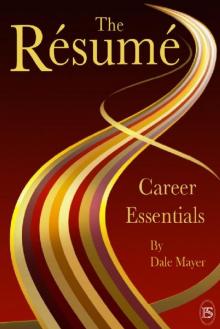 Career Essentials_The Interview
Career Essentials_The Interview Family Blood Ties Set 5 in 1
Family Blood Ties Set 5 in 1 Tyson's Treasure: A SEALs of Honor World Novel (Heroes for Hire Book 10)
Tyson's Treasure: A SEALs of Honor World Novel (Heroes for Hire Book 10) Tuesday's Child BK 1
Tuesday's Child BK 1 Greyson
Greyson Warrick
Warrick Chilled by Death
Chilled by Death Rare Find
Rare Find Michael’s Mercy
Michael’s Mercy Saul’s Sweetheart
Saul’s Sweetheart Into the Abyss: A Psychic Visions Novel (Psychic Visions Series Book 10)
Into the Abyss: A Psychic Visions Novel (Psychic Visions Series Book 10) Vampire in Control
Vampire in Control Knock, knock...
Knock, knock... Touched by Death
Touched by Death Anders’s Angel
Anders’s Angel Harrison's Heart (Heroes for Hire Book 7)
Harrison's Heart (Heroes for Hire Book 7) Shattered: A Psychic Visions Novel
Shattered: A Psychic Visions Novel Flynn's Firecracker: A SEALs of Honor World Novel (Heroes for Hire Book 5)
Flynn's Firecracker: A SEALs of Honor World Novel (Heroes for Hire Book 5) Vampire in Crisis
Vampire in Crisis Vampire in Conflict
Vampire in Conflict Deadly Designs
Deadly Designs SEALs of Honor: Devlin
SEALs of Honor: Devlin Liam’s Lily
Liam’s Lily Erick
Erick Rory’s Rose
Rory’s Rose Dakota’s Delight
Dakota’s Delight Cade
Cade Laszlo
Laszlo Broken Protocols 3.5
Broken Protocols 3.5 Tyson's Treasure
Tyson's Treasure Brandon's Bliss
Brandon's Bliss Rhodes's Reward: A SEALs of Honor World Book (Heroes for Hire 4)
Rhodes's Reward: A SEALs of Honor World Book (Heroes for Hire 4) Skin
Skin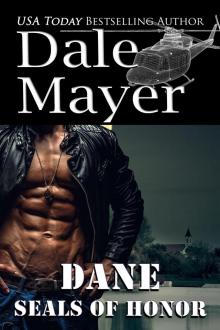 SEALs of Honor: Dane
SEALs of Honor: Dane SEALs of Honor: Chase
SEALs of Honor: Chase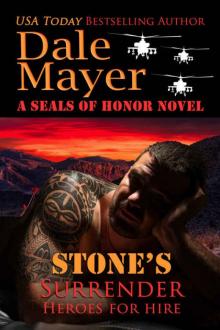 Stone's Surrender: A SEALs of Honor World Novel (Heroes for Hire Book 2)
Stone's Surrender: A SEALs of Honor World Novel (Heroes for Hire Book 2) Biker Blues: Morgan (Biker Blues Book 3)
Biker Blues: Morgan (Biker Blues Book 3) Badger
Badger Celeste
Celeste Scars
Scars